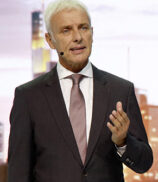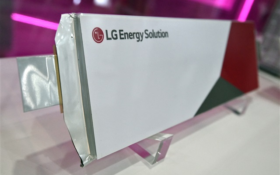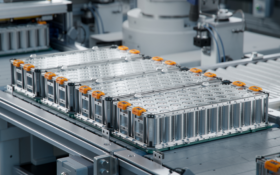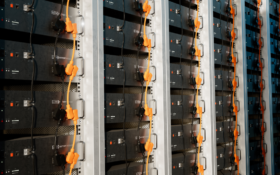Volkswagen has announced plans to invest more than EUR50 billion ($60bn) in battery cells and related technology, towards the electrification of its entire model portfolio by 2030 “at the latest”.
CEO Matthias Mueller (pictured) said the group has already launched a global tender process to find manufacturing partners in China, Europe and North America— as VW will “need more than 150GWh of lithium-ion battery capacity annually by 2025 for its own e-fleet alone”.
In addition, VW has earmarked capital expenditure of more than EUR20bn ($24bn) to “ramp up the industrialisation of e-mobility”.
Mueller announced the investments drive on 11 September. He said the move was part of VW’s ‘Roadmap E’ electrification programme— to have at least one electrified version of each of the group’s 300 or so models across all brands and markets by 2030.
Mueller said: “This is not some vague declaration of intent. It is a strong self-commitment which, from today, becomes the yardstick by which we measure our performance.”
But Mueller said creating a “comprehensive charging infrastructure rapidly, in cities and on highways, will be critical to success”.
“For us, the transformation of transportation and the energy transition are inseparable,” Mueller said. “In Europe, and particularly in the automotive stronghold of Germany, much more needs to be done. Only then will customers’ trust grow. And only then will electric cars come out of the niche— and achieve relevant market share in years to come. I’m convinced this will succeed if politicians, the energy industry and automakers work in harness.”
According to VW, the 150GWh-plus of battery capacity it will need annually by 2025 is “equivalent to at least four gigafactories for battery cells”.
The group estimated that around one in four new VW vehicles— “up to three million units a year depending on how the market develops”— could already be “purely battery-powered in 2025”.
Earlier this year, it was reported that Switzerland-based mining company Glencore had signed a deal to supply cobalt materials to a Chinese lithium battery manufacturer— who would in turn sell batteries for VW’s electric vehicles.
In July, a study by Dutch banking group ING suggested only electric passenger cars would be sold in Europe from 2035 as a result of falling battery costs, economies of scale and increased support from governments.












